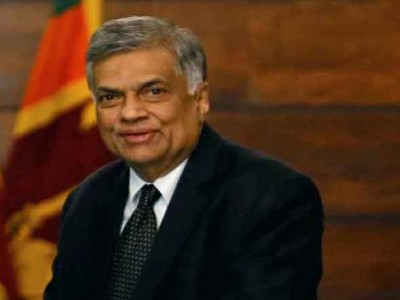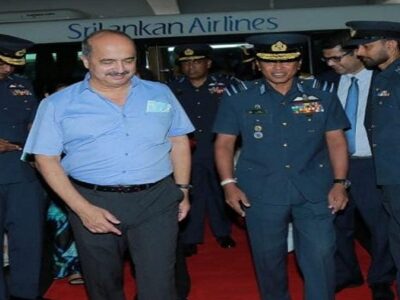(LANKAPUVATH | COLOMBO) –World Bank Vice President for South Asia, Martin Raiser, who today concluded his four-day visit to Sri Lanka, has reaffirmed the World Bank’s continued support to help the country navigate economic challenges, implement critical reforms, and chart a path towards a resilient and inclusive recovery.
During his visit, Raiser met with Sri Lanka’s President and Minister of Finance Ranil Wickremesinghe, Secretary of the Treasury, Governor of the Central Bank, senior government officials, development partners, and key opinion leaders including members of Sri Lanka’s political opposition, thinks tanks, civil society organizations and academia, a World Bank statement said.
“The people of Sri Lanka have been deeply affected by the macro and debt crisis affecting the country. The depth of the crisis has made it clear that Sri Lanka needs a new development model, but this requires greater confidence in and understanding of the government’s reforms”, said Martin Raiser.
“Improved communication and consistent implementation of the reform and adjustment program is urgent, as is faster international debt relief and financial support to ensure people don’t lose patience and the opportunity for a change isn’t lost.”
During the visit, Raiser discussed progress on reforms to transform economic governance in Sri Lanka through strengthened institutional and fiscal oversight and better debt management. He also stressed that greater transparency, improved governance, support for job creation, as well as better targeted protection for the poorest are critical to garner and sustain public support for reforms.
Raiser also visited North Central and Northwestern Provinces to observe first-hand World Bank-funded projects in the health and agriculture sectors, and to engage with a broad range of stakeholders on Sri Lanka’s development needs.
The World Bank was among the first to respond to Sri Lanka’s economic crisis. The Bank’s emergency response repurposed $325 million from existing projects to protect the poor and vulnerable from the worst impacts of the crisis.
In December, the Bank approved Sri Lanka’s request to access concessional financing from the International Development Association (IDA). This type of financing, offered at low interest rates, will enable the country to implement its government-led reform program to stabilize the economy and protect the livelihoods of millions of people facing poverty and hunger.
The World Bank Group has started preparing a new Country Partnership Framework for the next four years (2023-2026) with a focus on private sector led job creation, inclusion, preservation and strengthening of human and natural capital, improved governance, and a shift towards a greener growth path.




